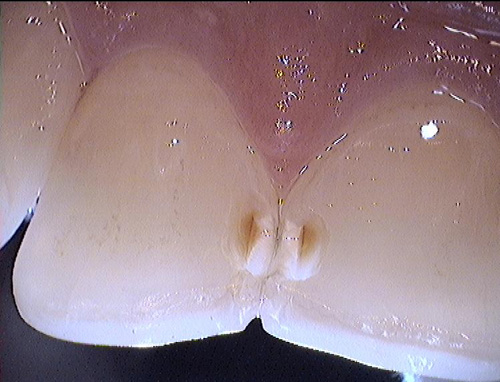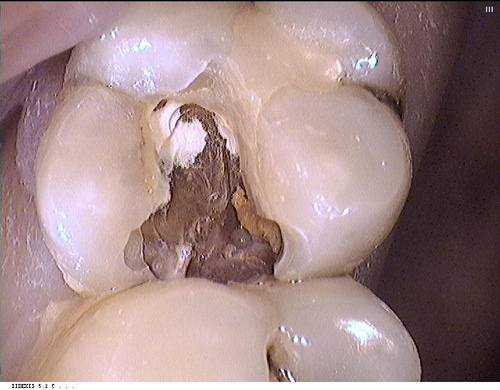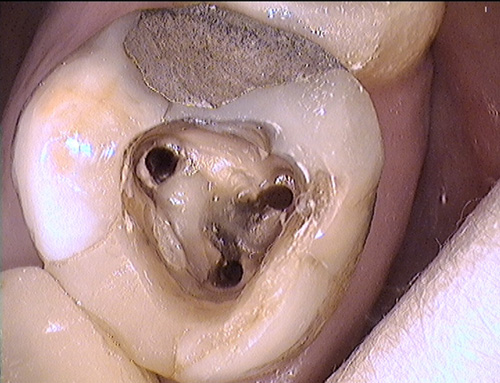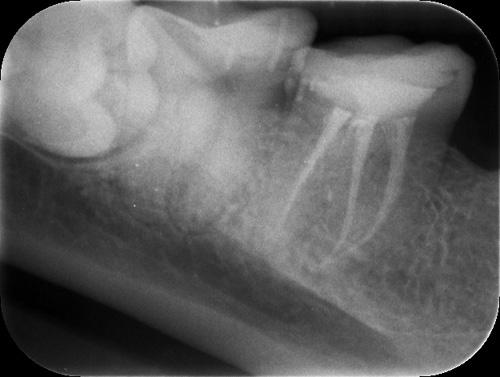Early Tooth Decay

This tooth decay is small, simple, fast, and relatively inexpensive to treat.
It is highly unlikely that an infection of this size and depth could cause a root canal infection.
Advanced Deep Tooth Decay

Infection that penetrates deep into the tooth will eventually allow bacteria to invade and infect the hollow root canals.
Initially, there may be no symptoms at all; the bacteria remains dormant [asleep].
When the infection is more advanced, the tooth may become sensitive to cold and hot due to inflammation in the pulp.
There can also be tenderness to tapping on the tooth.
Finally, the tooth aches constantly.
If untreated, the root canal infection can spread into the jaw bone to result for abscess formation, and then into the soft tissues of the face, resulting in a facial swelling full of pus.
Root Canal Treatment

Root canal treatment is the process of finding the one or more root canals, measuring the length of each canal (for instrumentation), and sterilising the root canals of bacteria.

Here, the sterilised root canals have been sealed with a type of resin, so that bacteria can no longer inhabit the root canals, to cause re-infection.
Root Canal Re-treatments
This is where a tooth that has had previous root canal treatment, becomes re-infected for several reasons.
The root canals can be re-treated, especially for patients who prefer a conservative approach.
Root Canal Surgery (Apicectomy)
This is an invasive method of sealing the root canals.
It is used only as a last resort.
We have many photographs of root canal surgery that can be viewed on request.
If you require root canal surgery, do let us know. |